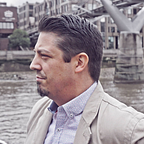Best 2016 Books by LGBTQ Authors: Staff Picks
In a 2016 that was tragic for the LGBTQ community, Kevin Catalano gravitated toward the year’s best books by LGBTQ authors.
I hardly ever choose books based solely on an author’s gender, race, or sexuality. I’m certainly not averse to those who do or to the practice itself; I’m just not that deliberate in my choices. As I was reflecting on the great books I’ve read that were published in 2016, however, it just so happened that some of my favorites were written by gay authors, namely: Jonathan Corcoran’s The Rope Swing, Paul Lisicky’s The Narrow Door: A Memoir of Friendship, and Wendy C. Ortiz’s Bruja. In addition, I read for the first time the quintessentially gay Leaves of Grass by Walt Whitman.
These are beautiful books that speak sometimes directly, sometimes indirectly to the gay experience, however distinct they are in form, voice, and style. The Rope Swing is Jonathan Corcoran’s poignant and personal debut collection of linked stories that begin in rural West Virginia and conclude in New York City, ending on a complicated story where a narrator-in-crisis stalks a young gay man who has been mutilated as a result of a hate crime. As Corcoran recounts, “writing that story was like expelling a thousand demons. It came out in such a fevered few sessions. All my fears and anger and hate and sadness came boiling out onto the page. I was thinking about homophobia, about violence, about hate crimes — and of course, about unrequited love.” One might call The Rope Swing necessary fiction.
In The Narrow Door, Paul Lisicky splays himself open to give us the tragic loss — and wonderful life — of his friend Denise, which is told in tandem with the unraveling relationship with his husband. This is Lisicky’s best, bravest, and wisest work, with so many stunning passages like this one:
Yes, this is how I will care for you. I will tune out my light until the fire stays completely inside, maybe unreachable to you. It doesn’t even occur to me that you might want to warm your hands hands on that fire, that you might need it in order to forget.
Finally, this year Wendy C. Ortiz introduced us to a brand-new literary form, the dreamoir, in her bewitching book, Bruja. This is a memoir-in-dreams, or as Ortiz calls it, “a hallway of mirrors … a labyrinth … a series of microfictions with recurring characters [and] themes.” Reading Bruja was the strangest, most challenging and satisfying experience I’ve had with prose in a long while. Incidentally, a line near the end seems to address the book’s elegant purpose:
She was reminding us to enjoy the sensual and even the surreal.
When reflecting on 2016 and how tragic it was in many ways, not least especially for the LGBTQ community, my gravitation toward these authors seems less coincidental. This year saw the worst mass shooting in our nation’s history leveled on a gay nightclub in Orlando, the discriminatory “bathroom law” passed in North Carolina, and a president-elect who continues to fill his cabinet with individuals who have unapologetically anti-gay records, not to mention a vice-president-elect who believes in conversion therapy. There’s every reason to despair, so many ways and means to wrap up and get lost in it. Still, there are art and artists who are not so easily scared; there are voices, sage and nascent, who will not allow injustice to go unchallenged.
And this is where Walt Whitman comes in: a man, a poet, who had witnessed his own fair share of atrocities in slavery, the Civil War, the assassination of President Lincoln, and who, through it all, continued to elevate the human spirit with his words.
This is what you shall do: Love the earth and sun and the animals, despise riches, give alms to every one that asks, stand up for the stupid and crazy, devote your income and labor to others, hate tyrants, argue not concerning God, have patience and indulgence toward the people, take off your hat to nothing known or unknown or to any man or number of men, go freely with powerful uneducated persons and with the young and with the mothers of families, read these leaves in the open air every season of every year of your life, re-examine all you have been told at school or church or in any book, dismiss whatever insults your own soul, and your very flesh shall be a great poem and have the richest fluency not only in its words but in the silent lines of its lips and face and between the lashes of your eyes and in every motion and joint of your body. …
— from Preface to Leaves of Grass
